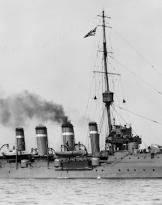SS-Sonderkommando Dirlewanger, also known as "SS-Sonderbataillon Dirlewanger", and "Sonderkommando der Waffen-SS Lublin". Formed by a small "Wilddiebkommando Orienburg" anti-partisan unit composed of poachers, SS, prisoners, trained by the SS-Totenkopf Standarte 5.
The unit commanded by SS-Obersturmbannführer dr. Oskar Dirlewanger (photo), was later augmented with military, men from all branches of the Wehrmacht, including the Waffen-SS, who had been convicted of serving crimes or felonies, civilians and volunteers, from concentration camps (political prisoners ). By February 19, 1944, his strength had reached 1.200 men.
Oskar Dirlewanger, born in Wurzburg in Franconia the 26 September 1895, was one of the most bloody products of an inhuman regime. He approached the Nazi party several times, first in 1923, then in 1926 and 1932. In 1934 he was accused of sexually abusing a child and sentenced to two years in prison. Between the 1937 and the 1939 he participated in the Spanish civil war. Back in Germany in 1940, thanks to the support of his friend Gottlob Berger, he was accepted in the SS with the rank of Obersturmführer. Also thanks to Berger he was appointed commander of a special battalion, called "SS-Sonderbataillon Dirlewanger", formed entirely by criminals.
The unit was established in the district of Lublin, under the authority of Odilo Globocnik. The Dzikow labor camp was entrusted to Dirlewanger, whose Jewish prisoners were forced to excavate a large anti-tank ditch along the Bug River.
Towards the end of the 1942 Dirlewanger and his men moved to Belarus, to participate in the fight against the partisans. In carrying out this task Dirlewanger was stained with crimes, massacres and looting of unprecedented violence and brutality. Even the SS found inexplicable Dirlewanger's brutality and opened an internal inquiry, which however did not lead to any indictment.
In March 1944 Dirlewanger was promoted to Standartenführer and in August he was sent to Warsaw to repress the revolt. On this occasion too, Dirlewanger provided evidence of unprecedented cruelty. In 1944 he was moved to Slovakia to repress the uprising that had broken out. At the beginning of February 1945, the brigade returns to fight on the front line, due to the emergency situation along the river Oder in Silesia. Additional volunteers arrive from concentration camps, including the men in charge of evacuating Auschwitz.
On June 1, 1945, the French occupation forces capture Oskar Dirlewanger at the Althausen hospital in Bavaria, and some Polish soldiers serving in the French forces lead the man to prison. He died under torture in the night from 4 to 5 June. During the next 15 years there were many false sightings of Dirlewanger all over the world. So much so that his body was exhumed in the 1960 to prove he was dead.












